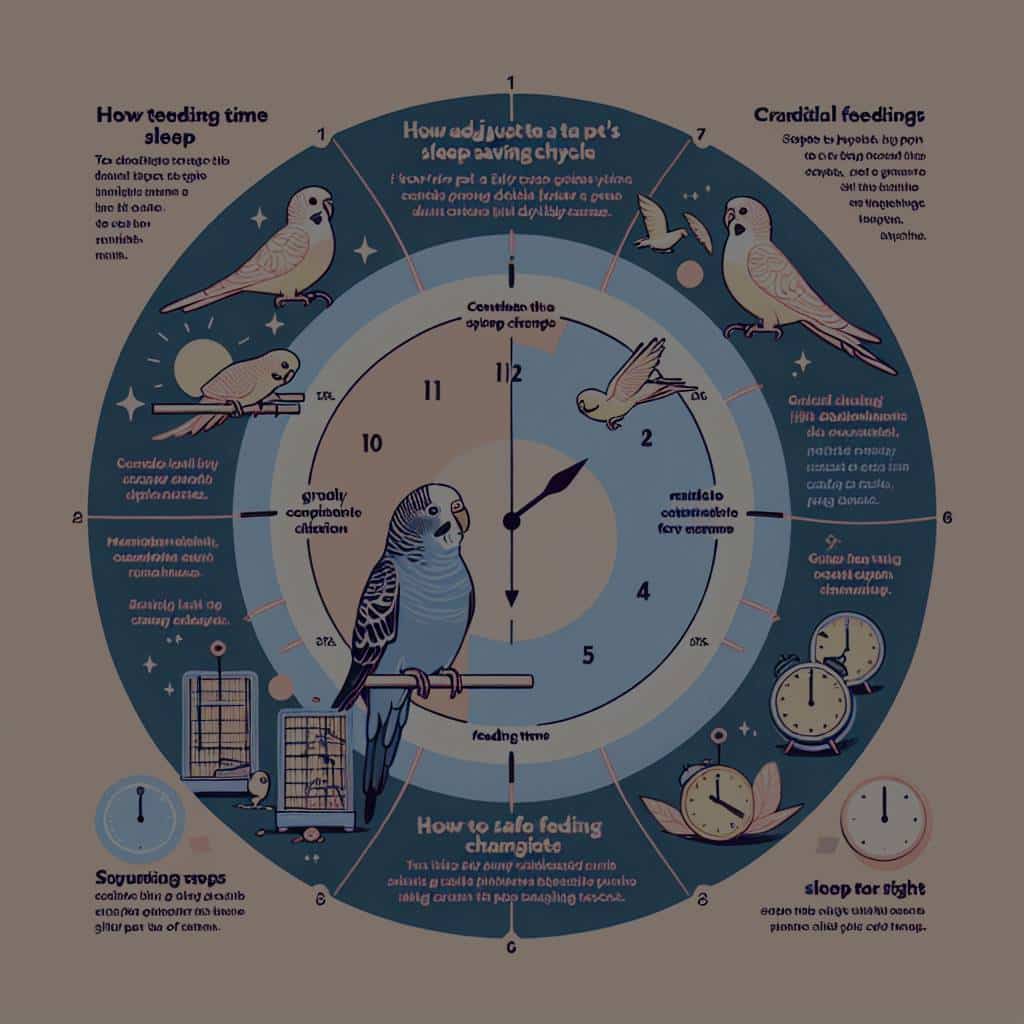How to Safely Adjust a Pet Bird’s Sleep Cycle During Daylight Saving Changes?

As the clocks go forward or backward during the daylight saving changes, not only humans but also our beloved pets need to adjust their biological clocks. Pet birds are especially sensitive to changes in light and their sleep cycles can be disrupted during this annual event.
In this article, we’ll take a deep dive into understanding how daylight saving changes can affect your pet bird’s sleep cycle and the safe, effective steps you can take to help them adjust. A secure, contented bird means a happy pet owner, so read on for some invaluable advice.
Dans le meme genre : How to Choose the Right Canine Breed for Assistance with PTSD?
1. Understanding the Bird’s Sleep Cycle
Before we delve into how to adjust your pet bird’s sleep cycle, it’s crucial to understand how it works in the first place. Birds, just like humans, have an internal body clock, or a circadian rhythm, that dictates their sleep-wake cycle. This rhythm is primarily influenced by light and dark.
Birds generally need about 12-14 hours of sleep a day. They are most active at dawn and dusk and sleep during the night. However, when daylight saving changes occur, the shift in light can confuse their internal body clock, leading to restlessness, irritability, and even health problems.
A lire également : What’s the Best Approach to Preventing Obesity in Indoor Cats with Limited Space?
Birds are also more sensitive to light than humans. Their eyes have more types of light receptors, allowing them to see a broader spectrum of light, including ultraviolet. This sensitivity to light means that even minor changes in their environment can have a substantial impact on their sleep cycle.
2. The Effects of Daylight Saving Changes on Birds
Now that we understand the bird’s sleep cycle, let’s look at how daylight saving changes can disrupt it. When the clocks are adjusted forward in spring, it means an hour less of sleep for both you and your bird. And when the clocks go back in autumn, an extra hour of sleep is added.
Birds can become confused by these sudden changes. They may wake up earlier or later than usual, affecting their feeding schedule. This disruption can lead to stress, changes in behavior such as increased aggression or decreased activity, and even affect their immune system, making them more susceptible to illnesses.
Moreover, birds are creatures of habit, and any changes in their routine can be distressing. Consistency is key for them, and daylight saving changes are anything but consistent.
3. How to Safely Adjust Your Bird’s Sleep Cycle
Helping your pet bird adjust to daylight saving changes safely is paramount. Here are some steps you can take:
Gradual Adjustment: Start adjusting your bird’s sleep schedule gradually a week before the daylight saving changes. Shift their bedtime by 10-15 minutes each day until you reach the new time. This gradual change is less likely to cause stress or confusion.
Controlled Lighting: Utilize bird-safe lamps or dimmers to control the light in your bird’s environment. During the evening, dim the lights to mimic dusk, signaling to your bird that it’s bedtime. In the morning, gradually increase the light to simulate dawn.
Keep Noise Levels Low: Birds associate quiet with nighttime. Keep noise levels in your home low during your bird’s bedtime. This will help them understand that it’s time to sleep.
4. Maintaining a Stable Environment Post-Daylight Saving Changes
After the daylight saving changes, it’s essential to maintain a stable environment for your bird. Keep their feeding schedule consistent with their new sleep schedule.
If your bird seems stressed or shows signs of sickness, consult an avian veterinarian. It’s also crucial to monitor your bird’s behavior during this transition. Any significant changes in their behavior may indicate that they are struggling with the new schedule.
Remember, a stable, consistent environment is key to a happy and healthy bird. With proper care and attention to their sleep cycle, daylight saving changes don’t have to be a stressful experience for your pet bird.
5. The Role of Nutrition in Managing Sleep Cycle Changes
In addition to maintaining a consistent lighting schedule and environment, the diet of your bird also plays a vital role in managing their sleep cycle changes. Birds have a high metabolic rate and need a balanced, nutritious diet to maintain their health and energy levels.
During the transition period of daylight saving changes, ensure your bird has a diet rich in vitamins and minerals. Fresh fruits, vegetables, and high-quality bird pellets should form the primary part of their diet. Avoid giving caffeinated or sugary foods, as they can disrupt your bird’s sleep.
Feeding times also play a significant part in setting your bird’s internal clock. Feed your bird at consistent times, aligning with their adjusted sleep-wake schedule. If your bird is a morning eater, adjust their feeding time gradually in line with their new waking time. Remember, sudden changes can lead to stress and anxiety in birds.
Water intake is also crucial. Dehydration can lead to disturbances in your bird’s sleep pattern. Ensure your bird has access to fresh water at all times, especially during the daylight saving transition period.
In essence, maintaining a balanced diet, consistent feeding times, and adequate water intake can significantly assist your bird in adjusting to the new sleep-wake schedule during daylight saving changes.
6. Conclusion
Daylight saving changes can be a challenging time for both pet birds and their owners. Birds, with their sensitivity to light and habituated routines, can find this sudden shift in their day quite distressing. However, with a thoughtful and gradual approach to adjusting their sleep cycle and a keen eye on their behavior, pet owners can help their feathered friends navigate this transition with ease.
Gradually adjusting the sleep schedule, controlling the lighting in their environment, providing a balanced diet, and maintaining a stable, consistent environment post-daylight saving changes can significantly reduce any stress or confusion your bird may experience.
Just remember, any sudden changes in your bird’s behavior or health should be an immediate concern. Consult with an avian veterinarian if you notice any signs of discomfort or illness in your bird.
In conclusion, understanding your bird’s sleep cycle and effectively managing it during daylight saving changes can lead to a healthier, happier pet bird. With a little patience and care, these changes can be smoothly incorporated into your pet’s life.
Let’s make daylight saving changes less about stress and more about a seamless transition for our pet birds.
